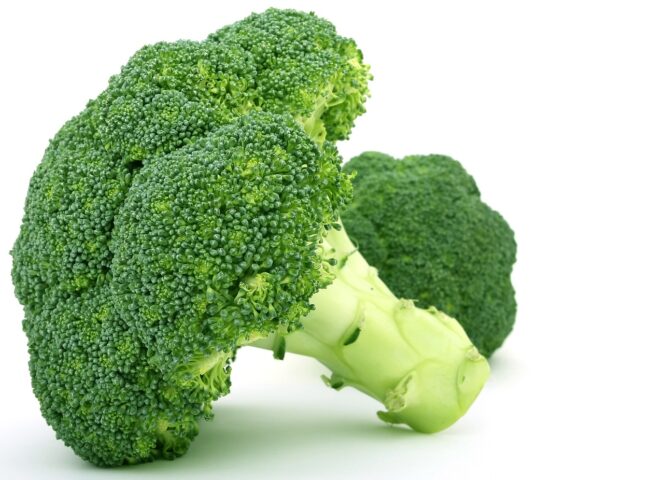Looking to learn how to gain weight healthily? Explore expert tips on building muscle, nutrient-rich foods, effective workouts, and stress management. Discover a balanced approach to achieving your weight gain goals while prioritizing overall well-being. Get personalized guidance from professionals for safe and effective results.
Table of Contents
In a world where discussions about health and wellness are often dominated by weight loss goals, it’s important to recognize that the spectrum of health extends far beyond shedding pounds. The misconception that health advice solely revolves around losing weight can be limiting and misleading, neglecting the diverse needs and goals of individuals.
1. Holistic Well-Being Health is a multi-dimensional concept that encompasses physical, mental, and emotional well-being. It’s about feeling energetic, vibrant, and emotionally balanced. Focusing only on weight loss overlooks the importance of mental health, self-care, and cultivating a positive relationship with one’s body.
2. Weight Gain for Health Just as weight loss can be a goal for some, weight gain is a legitimate goal for others. Individuals who are underweight or looking to build muscle mass may need guidance on how to gain weight in a healthy way. This goal involves making nutrient-rich choices, engaging in strength-building exercises, and adopting positive lifestyle changes.
3. Body Diversity People come in all shapes and sizes, and health isn’t determined solely by a number on a scale. Embracing body diversity means acknowledging that health looks different on everyone. A person’s weight doesn’t always reflect their overall health, and factors like genetics, metabolism, and lifestyle play a significant role.
4. Self-Confidence and Body Positivity Obsessively chasing weight loss can lead to body dissatisfaction and low self-esteem. Instead of fixating on changing one’s appearance, health advice should encourage self-acceptance and body positivity. A healthy mindset includes valuing oneself regardless of size or shape.
5. Sustainable Habits A focus on long-term well-being is more sustainable than crash diets or extreme weight loss measures. Health advice should promote habits that support vitality and longevity, which may include eating nutrient-dense foods, staying physically active, managing stress, and getting enough sleep.
6. Individual Goals People have unique health goals and circumstances. While weight loss might be important for some, others might be seeking increased strength, improved athletic performance, or better mental clarity. Tailored advice that respects individual goals is essential.
7. Rethinking Health Metrics Redefining health metrics beyond weight is crucial. Measurements such as body composition, muscle mass, cardiovascular fitness, blood pressure, and cholesterol levels provide a more comprehensive view of health.
The misconception that health advice revolves solely around losing weight oversimplifies the complexity of well-being. Health is a personalized journey that encompasses various aspects of physical, mental, and emotional wellness. It’s time to shift the narrative and embrace the diversity of health goals, focusing on sustainable habits, self-acceptance, and holistic vitality.

Recognizing the Importance of Gaining Weight ( How to Gain Weight ): Addressing Underweight Concerns and Muscle Building Goals
While weight loss tends to dominate health conversations, it’s essential to acknowledge that gaining weight holds significant importance for certain individuals. Whether dealing with being underweight or striving to build muscle, these goals are about achieving optimal health and well-being in their own right.
1. Addressing Underweight Concerns For individuals who are underweight, gaining weight is a crucial step towards restoring health and vitality. Being underweight can lead to a range of health issues, including weakened immune systems, compromised bone health, and reduced energy levels. Gaining weight can help to address these concerns, promoting overall well-being and reducing the risk of health complications.
2. Building Muscle Mass Gaining weight isn’t solely about increasing body fat; it’s also about building lean muscle mass. Muscles play a pivotal role in our metabolism, strength, and overall functional abilities. People seeking to build muscle may focus on gaining weight through nutritious food choices and targeted strength training exercises. This goal is about achieving a balanced and well-functioning body composition.
3. Health and Self-Confidence For both underweight individuals and those aiming for muscle growth, gaining weight often leads to enhanced self-confidence and improved quality of life. Feeling physically stronger, having more energy, and being satisfied with one’s appearance can greatly contribute to a positive self-image and mental well-being.
4. Balanced Nutrition and Physical Performance Gaining weight in a controlled and healthy manner involves consuming a balanced diet rich in essential nutrients. This not only supports the weight gain process but also provides the body with the fuel it needs for physical activity, mental clarity, and overall vitality.
5. Tailored Approach It’s important to note that gaining weight should be approached with individual goals and needs in mind. Some individuals may need to prioritize overall weight gain, while others may focus on building muscle while maintaining body fat levels.
Gaining weight isn’t solely about appearance; it’s about optimizing health, functionality, and self-confidence. Whether addressing underweight concerns or aiming to build muscle, individuals have unique goals that deserve support and understanding. A balanced approach that combines nutritional choices, exercise, and personalized guidance can help individuals achieve their weight-related goals while prioritizing their well-being.
Why Gain Weight?
Gaining weight isn’t solely about appearance; it serves a multitude of essential purposes that contribute to overall well-being and vitality. Several reasons underscore the significance of healthy weight gain:
1.1.1 Building Muscle Mass One of the primary motivations for gaining weight is to build muscle mass. Muscles are integral to our physical functionality, impacting everything from posture and movement to metabolism. Gaining weight in the form of muscle promotes strength, enhances physical performance, and contributes to a more robust physique.
1.1.2 Enhancing Energy Levels Gaining weight can also lead to improved energy levels. When the body is underweight, it often lacks the necessary fuel reserves to sustain daily activities. By increasing body mass through healthy weight gain, individuals can experience heightened vitality and reduced fatigue, making daily tasks more manageable and enjoyable.
1.1.3 Addressing Health Concerns For those grappling with being underweight, weight gain becomes a critical step towards addressing health concerns. Being underweight can weaken the immune system, making the body more susceptible to illnesses. Gaining weight can help fortify the body’s defenses, promoting overall health and reducing the risk of infections.
1.1.4 Restoring Hormonal Balance Maintaining a healthy weight is vital for hormonal balance. Hormones play a pivotal role in regulating various bodily functions, including metabolism, digestion, and energy utilization. Gaining weight can support hormonal equilibrium, contributing to improved overall health and well-being.
1.1.5 Supporting Mental Health A balanced weight is essential for mental well-being. Underweight individuals may experience cognitive challenges, including difficulties with concentration and mood fluctuations. Achieving a healthy weight can positively impact brain function, fostering mental clarity and emotional stability.
The Importance of Health
1.2.1 Nutrient-Dense Approach Healthy weight gain is not synonymous with indulging in calorie-rich, unhealthy foods. It’s about prioritizing nutrient-dense choices that provide essential vitamins, minerals, and macronutrients. This approach supports overall health, ensuring that weight gain is achieved through a well-rounded and balanced diet.
1.2.2 Balanced Lifestyle Emphasize that healthy weight gain isn’t an excuse to overindulge or lead a sedentary lifestyle. Instead, it’s an opportunity to adopt a balanced lifestyle that includes regular physical activity. Engaging in exercise not only aids in muscle development but also contributes to cardiovascular health and improved mood.
1.2.3 Long-Term Well-Being Highlight that the focus of healthy weight gain extends beyond short-term goals. Just as with weight loss, sustainable changes are crucial. The aim is to cultivate habits that promote long-term health and vitality, setting the stage for a future marked by energy, strength, and overall well-being.
1.2.4 Positive Body Image Reiterate that healthy weight gain encourages a positive body image. It’s about feeling confident and comfortable in one’s skin, regardless of societal standards or comparisons. Emphasize that health is diverse and unique to each individual, emphasizing self-acceptance and self-care.
1.2.5 Holistic Health Ultimately, healthy weight gain contributes to holistic health. It’s a journey that encompasses physical, mental, and emotional aspects. By focusing on nourishing the body, engaging in physical activity, and embracing a balanced approach, individuals can achieve a state of well-being that goes beyond numbers on a scale.
Understanding the reasons for gaining weight involves recognizing the multifaceted benefits, from muscle development and improved energy levels to addressing health concerns. The importance of healthy weight gain rests on fostering a balanced lifestyle, embracing nutrient-dense choices, and prioritizing long-term well-being. By appreciating the diverse dimensions of health, individuals can embark on a journey towards achieving a healthier and more fulfilling life.
Nutrition for Weight Gain
2.1 Caloric Surplus
Gaining weight involves a fundamental principle: consuming more calories than the body expends. This concept, known as a caloric surplus, provides the foundation for healthy weight gain. When you consistently consume more calories than your body burns through daily activities and metabolism, the excess energy is stored as body mass, leading to gradual weight gain. It’s crucial to strike a balance between the surplus and nutrient-rich choices to ensure that weight gain occurs in a controlled and healthful manner.
2.2 Nutrient-Rich Foods
Opting for nutrient-dense foods is paramount during weight gain, as the goal is not just to increase caloric intake but also to nourish the body. Examples of high-calorie, nutrient-rich foods include:
- Nuts and seeds: Almonds, walnuts, chia seeds, and flaxseeds are not only calorically dense but also rich in healthy fats, protein, and essential vitamins.
- Avocado: This creamy fruit offers healthy fats, fiber, and various vitamins that support overall health.
- Whole grains: Quinoa, brown rice, oats, and whole wheat pasta provide complex carbohydrates and fiber, contributing to sustained energy levels.
- Lean proteins: Chicken, turkey, fish, and tofu are excellent sources of protein, vital for muscle growth.
- Dairy products: Greek yogurt, cottage cheese, and milk provide protein and calcium for strong bones.
- Dried fruits: Dates, raisins, and dried apricots offer concentrated sources of calories and essential nutrients.
2.3 Protein for Muscle Building
Protein plays a pivotal role in the weight gain journey, particularly for those aiming to build lean muscle mass. During weight gain, protein provides the building blocks needed to repair and grow muscles after exercise. Adequate protein intake supports muscle recovery, adaptation, and growth, contributing to improved physical performance and a balanced body composition. Sources of protein include lean meats, poultry, fish, eggs, dairy products, legumes, and plant-based protein options like soy and quinoa.
2.4 Healthy Fats
Healthy fats are a cornerstone of weight gain for several reasons. Not only are they calorie-dense, but they also support various bodily functions, including hormone production, brain health, and nutrient absorption. Sources of healthy fats include:
- Nuts and seeds
- Avocado
- Olive oil
- Fatty fish (salmon, mackerel)
- Flaxseeds and chia seeds
Incorporating these fats into your diet contributes to overall health while aiding in weight gain.
2.5 Complex Carbohydrates
Complex carbohydrates are essential for providing sustained energy during weight gain. They fuel workouts, support daily activities, and prevent energy crashes. Carbohydrates are stored as glycogen in the muscles, enhancing physical performance and contributing to weight gain. Opt for whole grains, fruits, vegetables, and legumes, which offer a range of vitamins, minerals, and fiber in addition to their carbohydrate content.
Nutrition plays a pivotal role in healthy weight gain. A caloric surplus provides the foundation, while nutrient-rich foods, protein, healthy fats, and complex carbohydrates contribute to balanced and controlled weight gain. By selecting foods that support both energy intake and overall health, individuals can embark on a weight gain journey that promotes vitality and well-being.

Meal Planning and Diet Tips
3.1 Balanced Meals
Creating balanced meals is crucial during weight gain to ensure you’re meeting your body’s diverse nutritional needs. Aim to include a combination of macronutrients in every meal:
- Protein: Incorporate lean protein sources like chicken, fish, tofu, or legumes to support muscle growth and repair.
- Carbohydrates: Opt for complex carbs such as whole grains, sweet potatoes, and quinoa to provide sustained energy.
- Healthy fats: Add sources of healthy fats like avocado, nuts, and olive oil to enhance caloric intake and overall health.
- Fiber: Include plenty of fruits, vegetables, and whole grains to promote digestion and satiety.
3.2 Small, Frequent Meals
Breaking your daily caloric intake into smaller, frequent meals can help you consume more calories throughout the day. Aim for around 5-6 meals or snacks, spacing them evenly to prevent overwhelming your digestive system. This approach not only boosts calorie intake but also helps maintain energy levels and prevents excessive hunger.
3.3 Avoid Empty Calories
While the goal is to increase caloric intake, it’s essential to prioritize nutrient-dense foods over empty-calorie options. Foods high in added sugars, refined carbohydrates, and unhealthy fats might provide quick energy but lack the essential nutrients your body needs for overall health. Opt for whole foods that offer a combination of calories and essential vitamins and minerals.
3.4 Hydration
Staying hydrated is crucial for overall health and can indirectly support your weight gain efforts. Hydration aids digestion, nutrient absorption, and metabolism. Drinking water throughout the day can help prevent dehydration, which might negatively impact your appetite and energy levels. Consider hydrating beverages like water, herbal teas, and infused water with fruits for added flavor.
3.5 Planning Ahead
Meal planning can be a valuable tool during weight gain. Plan your meals and snacks ahead of time to ensure you’re getting the necessary calories and nutrients. This also prevents impulsive choices that might not align with your goals.
3.6 Listen to Your Body
Pay attention to your body’s hunger and fullness cues. Eating intuitively helps you avoid overeating while ensuring you meet your caloric goals. Remember that weight gain is a gradual process, so focus on consistent, sustainable changes rather than drastic shifts.
3.7 Seek Professional Guidance
Working with a registered dietitian or nutritionist can be immensely helpful during your weight gain journey. These experts can create a customized meal plan that aligns with your goals, preferences, and dietary needs.
Meal planning and diet tips play a pivotal role in achieving healthy weight gain. Balanced meals, small and frequent eating, avoiding empty calories, and staying hydrated contribute to a well-rounded approach. By focusing on nutrient-dense choices, creating a meal plan, and seeking guidance from professionals, individuals can cultivate a dietary strategy that supports their weight gain goals while promoting overall health.
Exercise and Strength Training
4.1 Muscle Building Workouts
In the pursuit of healthy weight gain, incorporating muscle-building workouts is essential. Muscle not only contributes to a more balanced body composition but also boosts metabolism, enhances physical performance, and supports overall well-being. Engaging in muscle-building workouts stimulates muscle growth and helps achieve your weight gain goals.
4.2 Compound Exercises
Compound exercises are key components of effective muscle-building routines. These exercises engage multiple muscle groups simultaneously, leading to more efficient and balanced muscle development. Some effective compound exercises include:
- Squats: Engages the lower body, including the quadriceps, hamstrings, and glutes.
- Deadlifts: Targets the posterior chain, including the back, glutes, and hamstrings.
- Bench Press: Focuses on the chest, shoulders, and triceps.
- Pull-Ups/Chin-Ups: Work the back, biceps, and shoulders.
- Rows: Target the upper back and lats.
- Overhead Press: Engages the shoulders, triceps, and upper back.
Incorporating these exercises into your routine provides a comprehensive approach to building muscle mass and achieving a balanced physique.
4.3 Rest and Recovery
Rest and recovery are as vital as the workouts themselves when it comes to muscle growth. During strength training, muscle fibers experience microscopic tears that need time to heal and repair. Adequate rest between workouts allows for this repair process to occur, leading to stronger and larger muscles.
- Sleep: Aim for 7-9 hours of quality sleep each night to support muscle recovery and overall well-being.
- Active Recovery: Incorporate lighter workouts or activities on rest days to promote blood flow and reduce muscle soreness.
- Nutrition: Proper nutrition, including adequate protein intake, helps muscles recover and grow.
- Listen to Your Body: Pay attention to signs of overtraining, such as excessive fatigue, persistent soreness, or decreased performance. Adjust your routine as needed to prevent injury and support recovery.
Engaging in muscle-building workouts is a critical aspect of healthy weight gain. Compound exercises target multiple muscle groups, fostering balanced development. Equally important is allowing your muscles to recover through rest, sleep, and proper nutrition. By adopting a well-rounded approach to exercise and recognizing the significance of recovery, individuals can optimize muscle growth and achieve their weight gain goals safely and effectively.
Healthy Lifestyle Changes
5.1 Quality Sleep
Quality sleep is a cornerstone of a healthy lifestyle and plays a significant role in supporting weight gain. The connection between sleep and weight gain is multifaceted:
- Hormonal Balance: Sleep influences hormones that regulate appetite and metabolism. Lack of sleep can lead to imbalances in hormones like leptin and ghrelin, potentially increasing appetite and promoting weight gain.
- Muscle Recovery: Sleep is when the body repairs and rebuilds muscles after workouts. Adequate sleep supports muscle growth and overall recovery.
- Energy Levels: Quality sleep ensures you have the energy to engage in workouts and daily activities, contributing to effective weight gain strategies.
5.2 Stress Management
Stress can have a considerable impact on weight gain and overall health. Chronic stress triggers the release of cortisol, a hormone that, when elevated, can lead to weight gain, particularly around the abdominal area. Stress may also affect eating habits, leading to emotional eating or a preference for unhealthy comfort foods.
Managing stress is essential for healthy weight gain:
- Mindfulness and Meditation: Practicing mindfulness and meditation can help reduce stress levels and improve emotional well-being.
- Physical Activity: Engaging in regular physical activity, such as yoga or light exercise, can help alleviate stress.
- Support System: Connecting with friends, family, or professionals can provide outlets for managing stress.
5.3 Patience and Realistic Goals
Healthy weight gain is a gradual process that requires patience and realistic goal setting. Understand that changes in body composition take time, and overnight transformations are neither sustainable nor healthy. Encourage readers to:
- Set Achievable Goals: Set small, achievable milestones that contribute to long-term success.
- Focus on Progress: Celebrate each step of progress, whether it’s increased strength, improved energy levels, or enhanced muscle definition.
- Embrace the Journey: Understand that the path to a healthier weight is about more than just the destination. Embrace the learning, growth, and positive changes along the way.
Healthy lifestyle changes are pivotal for successful weight gain. Quality sleep supports hormone regulation and muscle recovery, while effective stress management is crucial for preventing stress-related weight gain. Patience and realistic goal setting ensure that healthy weight gain is sustainable and beneficial in the long run. By addressing these lifestyle factors, individuals can cultivate a holistic approach to their weight gain journey that promotes overall well-being.
Seeking Professional Guidance
6.1 Consulting a Dietitian or Nutritionist
When embarking on a weight gain journey, seeking personalized guidance from a registered dietitian or nutritionist is highly recommended. These professionals specialize in creating tailored nutrition plans that align with your goals, preferences, and health needs. A dietitian or nutritionist can:
- Assess your current dietary habits and needs.
- Develop a customized meal plan that supports healthy weight gain.
- Ensure you’re getting the right balance of nutrients for optimal health.
- Monitor your progress and make adjustments as needed.
6.2 Medical Considerations
Before making significant changes to your diet and exercise routine, it’s important to consider any underlying medical conditions. Consulting a healthcare professional, such as a doctor or a healthcare provider, is crucial, especially if you have:
- Chronic health conditions: Conditions like diabetes, heart disease, or thyroid disorders can influence your approach to weight gain.
- Allergies or sensitivities: Certain foods may need to be avoided due to allergies or sensitivities.
- Medications: Some medications might impact appetite, metabolism, or nutrient absorption.
Addressing these medical considerations ensures that your weight gain journey is safe and well-informed. A healthcare professional can provide valuable insights and recommendations tailored to your specific health status.
Seeking professional guidance is essential when pursuing a healthy weight gain journey. Consulting a dietitian or nutritionist helps you create a well-rounded nutrition plan that aligns with your goals. Additionally, addressing any underlying medical concerns with a healthcare professional ensures that your approach to weight gain is safe and beneficial for your overall health. By working alongside these experts, you can navigate your journey with confidence and optimize your chances of achieving your weight gain goals in a healthful manner.

Embracing Healthful Weight Gain
Throughout this article, we’ve delved into the multifaceted journey of healthy weight gain, shedding light on its significance beyond mere numbers on a scale. Let’s recap the key points that highlight the holistic approach to achieving your weight gain goals:
- Diverse Health Goals: Health isn’t solely about losing weight; it’s about nourishing your body to achieve balance, vitality, and well-being.
- Underweight Concerns: Gaining weight can address health issues related to being underweight, such as compromised immunity and energy levels.
- Muscle Building: Gaining weight isn’t just about fat; it’s about promoting muscle growth for strength, performance, and metabolism.
- Nutrient-Dense Choices: Opt for nutrient-rich foods like lean proteins, healthy fats, and complex carbohydrates to nourish your body.
- Caloric Surplus: Gaining weight involves consuming more calories than you burn, but prioritize nutrient density over empty calories.
- Compound Exercises: Engage in strength training with compound exercises to promote balanced muscle development.
- Rest and Recovery: Allow your muscles time to recover and rebuild through adequate sleep and active recovery.
- Healthy Lifestyle: Prioritize quality sleep, manage stress, and set realistic goals for a balanced approach to weight gain.
- Professional Guidance: Consult dietitians, nutritionists, and healthcare professionals to tailor your approach to your individual needs.
Approach Weight Gain Holistically
Remember that your journey toward healthful weight gain is a commitment to your overall well-being. It’s about embracing the diversity of health goals, focusing on balanced nutrition, engaging in strength training, and incorporating healthy lifestyle habits. Celebrate your progress, both visible and invisible, and practice self-compassion along the way.
Healthy weight gain isn’t about comparing yourself to others or pursuing unrealistic ideals. Instead, it’s about nourishing your body, building strength, and cultivating a positive relationship with yourself. By focusing on health and well-being, you’re embarking on a journey that goes beyond physical changes—your energy, confidence, and vitality will reflect the balanced and mindful approach you’ve chosen. Here’s to your journey toward a healthier, stronger, and more vibrant you.







Leave feedback about this